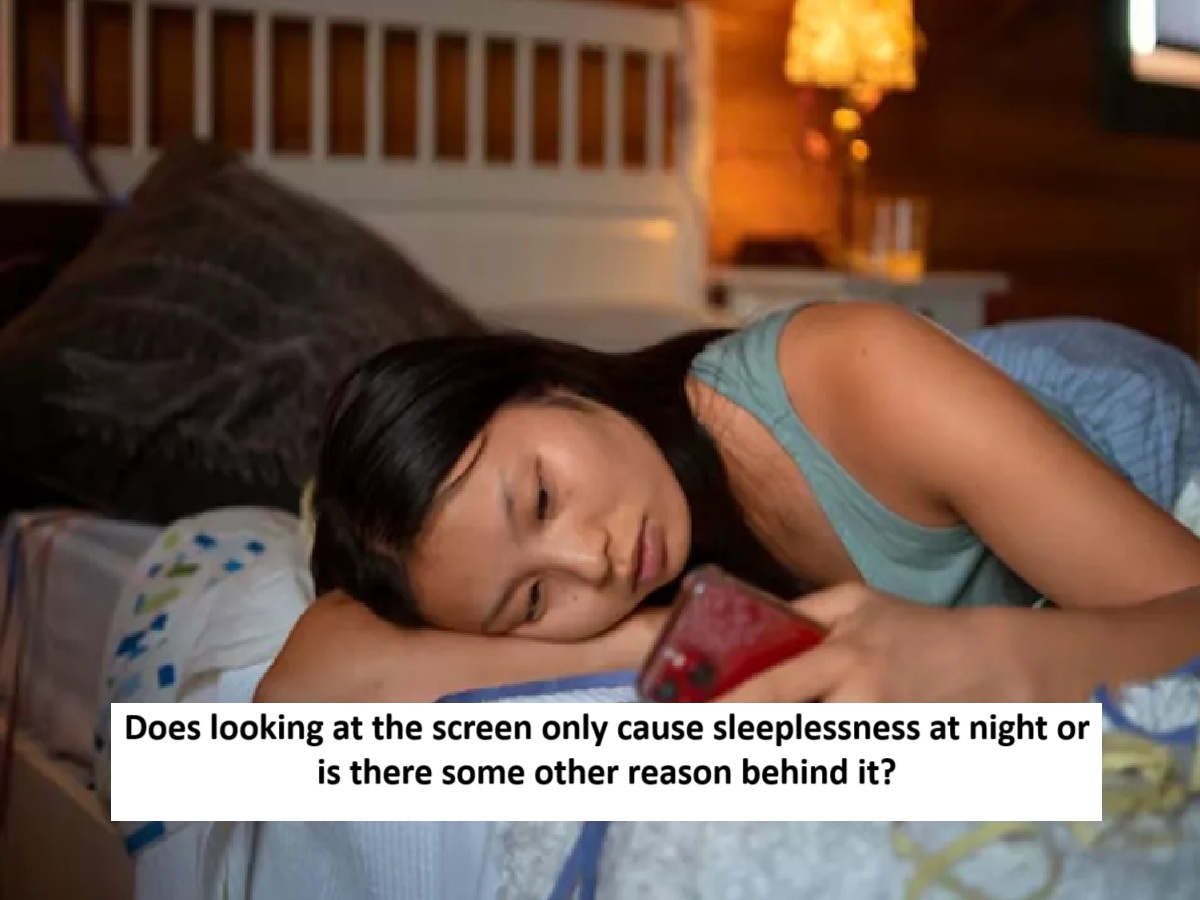
News Topical, Digital Desk : It is often said that using a mobile phone or laptop before sleeping deprives you of sleep (Poor Sleep). The reason for this is believed to be the blue light emitted from the device, which reduces the secretion of the melatonin hormone.
But is blue light really the only villain? But this is not so. Apart from the blue light emitted from the screen (Blue Light and Sleep Disturbance), there are many other factors that affect our sleep. Let's know about them.
Does blue light affect sleep?
- A 2013 study found that using an iPad for two hours at full brightness had a slight impact on sleep, while one hour of use made no significant difference.
- A 2014 study found that watching TV from a distance of about 9 feet had no significant effect on melatonin levels.
- A 2018 study highlighted that screen brightness is the most important factor. Higher brightness increases the effect, while settings such as lower brightness and night mode can reduce the effect.
Another important thing is that the natural sunlight during the day also reduces the effect of night. The more sunlight we get during the day, the less effect the screen light will have in the evening. Above all, every person's sensitivity to blue light is different. For some people even normal light can keep them awake, while for some even watching a high-octane action movie has no effect. So it also depends on the person.
Then why does sleep get disturbed?
Research has now started to believe that the activity performed on the screen plays a more important role in disturbing sleep than the light of the screen. Scrolling social media, playing action packed games, shopping online or reading news continuously - all these things activate the 'reward system' of our brain. This releases chemicals like dopamine, which keeps the brain alert, excited and busy. In such a situation, it becomes difficult to sleep peacefully.
A 2024 study found that adults who played games or chatted on messaging apps just before bedtime not only started sleeping late but also had a shorter total sleep duration. Surprisingly, it did not have much effect on the sleep of those who were just watching TV or a movie.
Can screens ever help you sleep?
This may seem contrary to popular belief, but yes. If one's mind is filled with anxiety or negative thoughts, screens can act as a 'distraction tool'. Watching a light comedy show or an old, familiar and relaxing movie can help induce sleep by ridding the mind of confusing thoughts .
Read More: Gastric Headache: Does gas also reach the head? Know how dangerous this disease is?
--Advertisement--

 Share
Share



